Survey: Odds of a U.S. recession by mid-2024 now hit 65%
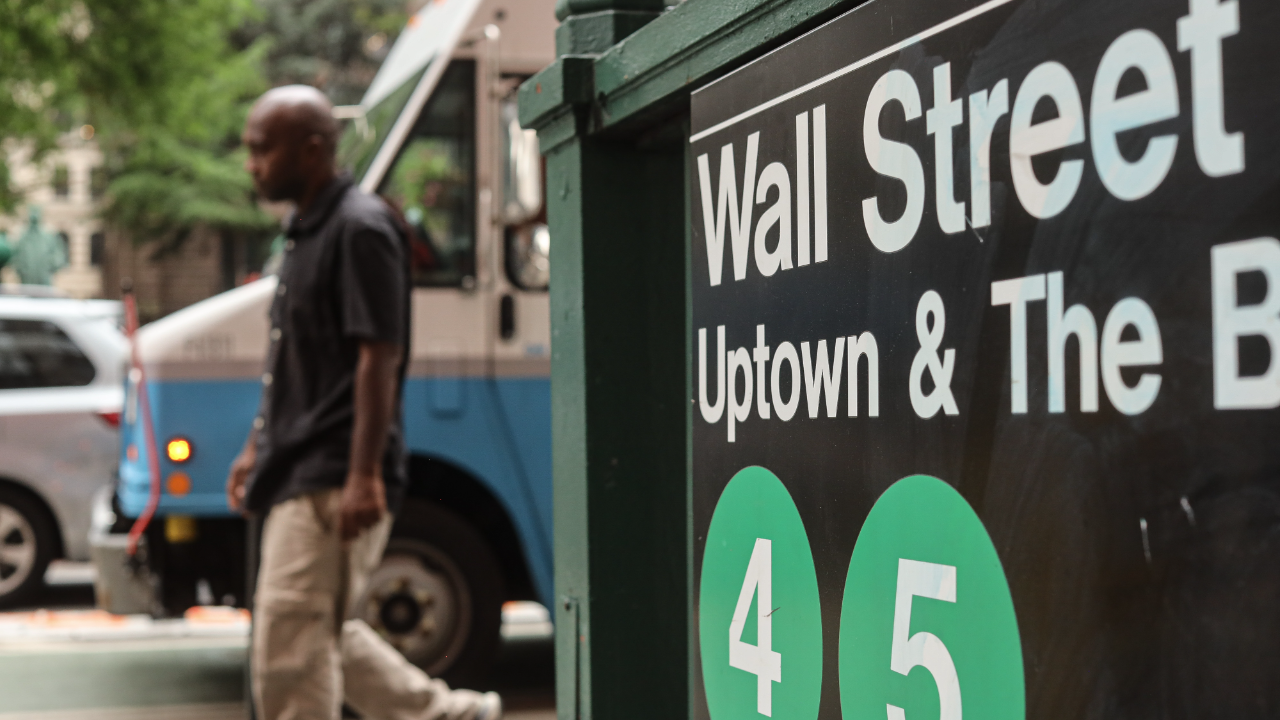
The Bankrate promise
At Bankrate we strive to help you make smarter financial decisions. While we adhere to strict , this post may contain references to products from our partners. Here's an explanation for .
The U.S. economy’s odds of avoiding a recession are narrowing — and quickly.
Economists polled for Bankrate’s Third-Quarter Economic Indicator say there’s a near 2-in-3 chance (or 65 percent) that the U.S. economy could contract within the next 12 to 18 months. Those estimates have risen dramatically since the start of the year. In the first-quarter poll, economists put the odds at 1-in-3 and then ramped up those projections to 52 percent in the second-quarter survey.
More than 8 in 10 economists (or 86 percent) also say the economy’s chances of contracting are at 50 percent or more — a bigger share than in the prior survey period (65 percent). One economist also said the financial system has a 100 percent chance of contracting, while just two put the odds at less than half.
Reflecting those concerns, experts say a lot more can go wrong than right between now and the middle of 2024. The majority (or 86 percent) say the balance of risks facing the U.S. economy over the next 12 to 18 months are tilted toward the downside. Just one economist said risks are tilted toward the upside, while another lone economist said the outlook was evenly balanced.
“The downside risk is a trap door about to open and send the economy plunging into the abyss of recession,” says Robert Brusca, chief economist at Fact and Opinion Economics and a former New York Fed official, whose forecast put recession odds at 100 percent.
Recessions are almost as hard to predict as the weather, and no one knows whether the U.S. economy could officially enter a downturn — and when it may begin. Economists’ responses underscore the importance of preparing for a recession, from finding the best place to park your emergency fund to limiting how much you’re spending on big-ticket purchases.
“This raises the risk that emergency savings could be needed by households in the coming months, much the same as it was needed or would have been useful during the early days of the pandemic when 22 million jobs were lost in just two months’ time,” says Mark Hamrick, Bankrate senior economic analyst, referring to these rising recession risks. “We don’t expect anything nearly so severe, but the economy is at some risk here.”
Forecast and analysis:
- Experts see massive hiring slowdown and surging unemployment a year from now
- The Fed’s interest rate will top 4.71 percent, the highest since 2007
- 43 percent of economists say inflation hasn’t yet peaked
- Odds of a U.S. recession by middle of 2024 now at 65 percent
Why recession risks are rising
Tracking the origin of recession risks means consumers might have to play one of the most consequential games yet of “Which came first: The chicken or the egg?”
Ten straight months of the hottest price pressures in four decades could be part of the story, especially considering how 58 percent of consumers in a February Bankrate poll say they’ve had to cut back on spending to make ends meet — robbing the U.S. economy of its main engine of growth.
But what’s happening because of surging prices could cause the most disastrous consequences. The Federal Reserve has been lifting interest rates at a pace as equally unprecedented as today’s bout of rapid inflation. Officials so far have raised interest rates 3 percentage points in just a six-month span, something officials haven’t done since the U.S. central bank’s previous inflation-fighting days in the 1980s.
Higher interest rates work to cool inflation by slowing demand, especially for big-ticket purchases. The 30-year fixed-rate mortgage has more than doubled since the start of the year and hit a 14-year high of 6.73 percent in a Sept. 28 national Bankrate survey. Credit card rates, meanwhile, jumped 2.22 percentage points from a year ago, while some new and used car loans have surged nearly a full percentage point.
Businesses may delay investments or expansions on account of those more expensive borrowing costs — and even more so if they rely on capital markets for financing. The S&P 500 is down nearly 22 percent since the start of the year, in bear market territory.
When it’s no longer cheap to purchase something, many consumers decide to hold off entirely, also taking steam away from the U.S. economy. But it comes at a cost, especially for the businesses and jobs that rely on this consumer demand to stay afloat.
“The Fed will be forced to raise rates higher than they currently expect in order to squeeze inflation out of the system,” says Joel Naroff, president of Naroff Economics. “It is hard to see how that doesn’t lead to a recession.”
Economists say households are coming from a relatively strong position, especially considering the trillions of dollars they stockpiled thanks to direct pandemic relief from the federal government. While no recession is welcome, experts also say a downturn caused by higher interest rates could prove to be shorter and less severe than one spurred by a financial crisis.
“The risk of recession is high due to the Fed’s aggressive tightening to fight inflation,” says Bernard Markstein, president and chief economist at Markstein Advisors. “I expect it will be a relatively mild recession due to the strength of business and household balance sheets.”
Yet, higher interest rates and inflation throughout the world could make the slowdown more pronounced, especially if a downturn impacts most of the world. Higher rates from the Fed also strengthen the dollar, which could hurt emerging markets and dampen demand for U.S. exports.
“Over the next year, the U.S. economy will be on a knife’s edge of recession,” says Bernard Baumohl, chief global economist at the Economic Outlook Group. “It may well squeak out positive growth in 2023 as a whole, but that does not preclude one or two quarters of minimal negative GDP growth. But even that is preferred over the far more serious recessions other major economies are expected to experience next year.”
Hear from the experts
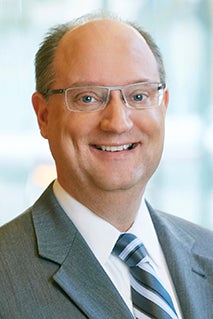
A mild recession is now more likely than not over the next 12-18 months. Higher interest rates and much tighter financial conditions are the primary catalysts.
— Scott Anderson, EVP and chief economist, Bank of the West
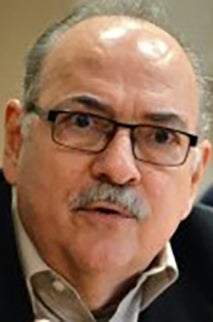
Recession is a certain, based on how high inflation is and how far below inflation the Fed funds rate is. Bond yields and mortgage rates have surged higher as they can see the handwriting on the wall. For a while there was a belief that the Fed was going to try to maneuver for a soft landing. Now, that ship has sailed. The Fed is focused on controlling and reducing inflation to target. Inflation has never been this high and come under control without there being a recession. There will be no miracles from monetary policy.
— Robert Brusca, Fact and Opinion Economics

Recession odds remain high as the Fed continues to fight inflation, which may come at the cost of a recession. Recession risk remains elevated and will likely grow as the economy absorbs the full impact of the Fed’s interest rate hikes.
— Odeta Kushi, deputy chief economist, First American Financial Corporation
Methodology
The Third-Quarter 2022 Bankrate Economic Indicator Survey of economists was conducted Sept. 22-29. Survey requests were emailed to economists nationwide, and responses were submitted voluntarily online. Responding were: Ryan Sweet, senior director of economic research, Moody’s Analytics; Yelena Maleyev, economist, KPMG LLP; Odeta Kushi, deputy chief economist, First American Financial Corporation; Lawrence Yun, chief economist, National Association of Realtors; Robert Hughes, senior research faculty, American Institute for Economic Research; Mike Fratantoni, chief economist, Mortgage Bankers Association; Bernard Baumohl, chief global economist, The Economic Outlook Group; Scott Anderson, executive vice president and chief economist, Bank of the West; Bernard Markstein, president and chief economist, Markstein Advisors; Mike Englund, chief economist, Action Economics; John E. Silvia, founder and president, Dynamic Economic Strategies; Robert Frick, corporate economist, Navy Federal Credit Union; Joel Naroff, president, Naroff Economics; and Robert Brusca, chief economist, Fact And Opinion Economics.
Related Articles
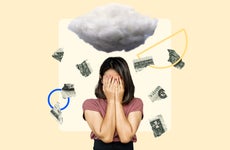
Survey: Recession odds for U.S. economy have now fallen to the lowest level in two years
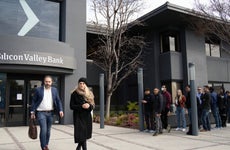
Survey: Recession odds for 2023 hover at 64% amid bank failures and higher rates
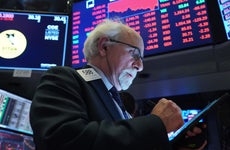
Survey: The U.S. economy has a 64% chance of entering a recession this year
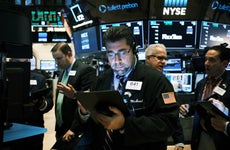
Survey: Recession odds diminishing for U.S. economy, but watch for a slowdown